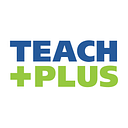Teacher Shortage Hurts Teaching and Learning in Multiple Ways
By Mercedes Harvey-Flowers
Arya and Ali are hunched over their Chromebooks, typing casually. Their screens aren’t facing me, so I can’t see what they’re doing. They’re either working on their World War II project or playing Snake. I open Google Classroom, scroll to their document, and see two cursors: one pink, one purple. Half-baked ideas appear, then disappear. Not only are these two pushing through their assignment, but they’re actually working, brainstorming, and filling in gaps in their thinking. They’re collaborating.
As a classroom teacher, I think of collaboration as the core of my practice. I collaborate with other teachers to ensure that students are using the skills they’ve gained cross-curricularly. The new investigative unit on World War II, which Arya and Ali are working on, and which lets students showcase their critical thinking, informational text analysis, and historical writing skills, are the result of a collaborative effort with my colleagues. Several times a week, I emphasize collaboration between students to help problem-solve. Just this week, my students worked collaboratively in “Think Tanks” to advise President Truman on how to handle the first two atomic bombs developed by the United States. Students reviewed the material, shared thoughts rooted in evidence, and then went on to craft letters to President Truman with the collective opinion of their Think Tank. Collaboration helps my students develop their thinking and helps me grow as a teacher.
However, collaboration becomes difficult in the midst of an unprecedented teacher shortage, when our students don’t have a qualified teacher for each subject, let alone a team of educators who can work together to connect the dots to improve how teachers teach and students learn. Even in districts like mine that are typically fully staffed, our students have gaps in their schedules. For example, for the greater part of the last school year, our school lacked a full-time biology teacher. While the head of our science department worked tirelessly to ensure that our students had standards-based assignments each day, there is no substitute for a highly qualified teacher in the classroom. Having a different substitute teacher every day, with different expectations, is a recipe for students falling behind and makes their return to the classroom that much harder.
Luckily, we have a strong legislative solution. House Bill 5107 that is currently before the Michigan Legislature would help to eliminate some of the vacancies and alleviate the teacher shortage. Sponsored by Rep. Sarah Anthony, HB 5107 calls on the Michigan State Board of Education to develop a model teacher-cadet program that schools, districts, and intermediate school districts can implement. The program would give high school students invaluable experience in preparing to one day become teachers and build an important pipeline of future educators. In South Carolina, for example, over 71,000 students have participated in its teacher cadet program since its inception in 1985.
Teacher cadet programs are a category of Grow Your Own programs that focus on the recruitment, development, and retention of teachers through hands-on experiences offered by their high schools. By collaborating with the government, local universities, and school districts to create and implement Grow Your Own programs, we can take an important step toward ensuring that every student has access to a highly qualified teacher in every Michigan classroom.
Arya and Ali’s project ended up a faithful representation of their collaboration. It was apparent to me that they grappled with the decision to drop the atomic bomb, much like President Truman did. Their knowledge of the long-term consequences of that decision, and burgeoning political opinions were evident in their project. Ultimately, Arya’s love of happy endings and nuanced explanations melded well with Ali’s focus on action and conciseness. The finished product met all my expectations of the assignment while being a perfect representation of both of their ideas and vision. Now, it is time for adults to do the same to ensure students can continue to have meaningful experiences in the classroom.
Mercedes Harvey-Flowers teaches U.S. history and Advanced Placement research at Crestwood High School in Dearborn Heights, Michigan. She is a member of the inaugural Michigan Teacher Leadership Collaborative, a program for highly effective teachers led by The Education Trust-Midwest and Teach Plus.
